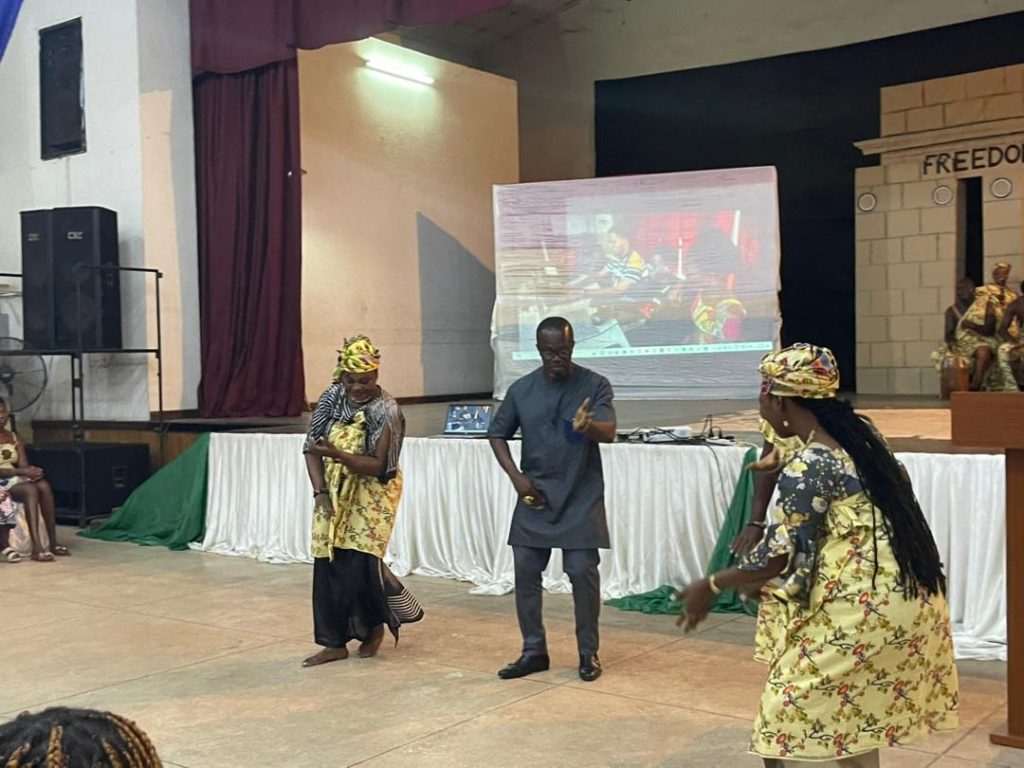By Victoria Agyemang
Cape Coast, Aug. 19, GNA – The National Commission on Culture (NCC) has advised graduates of skilled training to shape their destinies with the tools acquired to contribute their quota to economic development of the nation.
Nana Otuo Owoahene Acheampong, the Executive Director of NCC said skill acquisition was not just a means to an end but a lifelong expedition.
Thus, youth who acquire skills must embrace the ethos of entrepreneurship, innovation, and perpetual learning to help shape the economy.

Speaking at the seventh annual graduation for trainees of the Caoe Coast Centre for National Culture (CNC), Nana Acheampong noted that skill acquisition played a pivotal role in shaping a dynamic economy led by entrepreneurs.
It was on the theme: “CNC: A tool for economic development through entrepreneurship”.
In all, 113 people were given a five-week training on various skills including crocheting, basic sewing, dreadlocks, fascinator, painting and drawing, bags and sandals.
Others are facial makeup, hair braiding, bead making, photography, decoration and florals.
Moreover, it has consistently proved its power to catalyze transformation within lives and communities in Ghana and beyond and should be prioritized.
The Executive Director called on stakeholders and private sector players to collaborate with CNC to continue the flagship programme to enable them empower more individuals to become architects to change, propelling economic development.

Furnishing the Centre with the necessary tools and resources, has become imperative to effectively fulfill its central mission of investing in the future of the country through skilled artisans, visionary entrepreneurs for sustainable economic advancement.
Focusing on the C-Carl Oparebea Marketable Skill Training programme, Madam Salamatu, Alhassan, the Central Regional Director of Cape Coast CNC said the training indicated the commitment of the Centre to nurturing potential, fostering innovation and empowering the youth to become self reliant and responsible citizens.
She advised the graduates to use the skills acquired to uplift others, inspire change and be driven by economic progress.
GNA